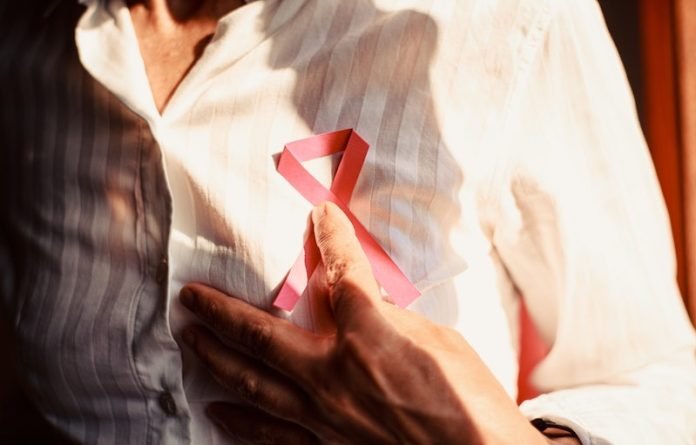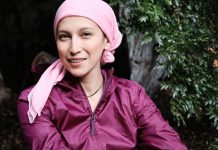
Breast cancer is the most common cancer in the world. Every year it claims more than 650,000 lives.
Breast cancer affects more women in high-income countries like the US and the UK. But people in low- and middle-income countries, such as Nigeria, are most vulnerable.
This is mainly because people in these countries seek medical help at a late stage when the disease is advanced. When breast cancer is at an advanced stage, it is harder to treat and people are more likely to die.
Nigeria, for example, has one of the highest breast cancer fatality rates. The country has seen a significant increase in the number of breast cancer cases over the past four decades.
It’s currently the most commonly diagnosed cancer and one of the leading causes of cancer deaths in the country.
The deficiencies in the Nigerian healthcare system – which requires that most patients pay out-of-pocket for their own healthcare – further contributes to the poor outcomes.
Some patients who get diagnosed with breast cancer are either unable to access quality healthcare or suffer catastrophic healthcare expenditure when they do so.
Worryingly, most of those affected are in their forties or sometimes younger. White patients tend to be older – often in their sixties.
Breast cancer is curable, provided it is detected early and treated promptly. There are steps that one can take to minimise the risk and increase the possibility of survival.
I’m a breast cancer expert, working in south-west Nigeria. My work in breast cancer focuses on promoting early detection, creating clinical pathways for prompt evaluation and treatment, and improving treatment outcomes.
Based on my experience, I outline here five things one can do to detect breast cancer early and reduce the risk of death.
Recognise breast cancer symptoms and signs
The first important thing is to be familiar with the symptoms and signs of breast cancer. This will enable you to act promptly. Here are some of the symptoms and signs to watch for:
Lump in the breast – not all breast lumps are cancerous but when you feel one seek medical help
Change in the size or shape of the breast
Dimpling or thickening of a part of the breast
Nipple changes such as retraction of the nipple inwards, deformity of the nipple or an ulcer on the nipple
Nipple discharge, particularly if bloody
Changes in the skin of the breast such as redness
Swelling in the armpit.
Seek help early
If you notice any abnormality in your breast, have your breasts examined by a specialist as soon as possible.
There are three ways in which an abnormality in your breast is evaluated: a clinical examination, breast imaging (ultrasound or mammography) and, if necessary, laboratory testing (histopathology).
Until you have been evaluated by a trained medical professional, never make assumptions about what you feel in your breast.
Take advantage of breast cancer screening
Breast cancer screening refers to tests and examinations performed on women who have no symptoms, in order to detect breast cancer very early.
All women are generally encouraged to participate in screening, but it is imperative for those who are at high risk, such as those who have a family history of breast cancer. Screening can be done in a variety of ways:
Mammography: This is most appropriate if you are 40 years or older. It can be done yearly, or once every two years.
It’s a specialised x-ray that examines the breasts for the presence of early signs of breast cancer which are sometimes not evident to the naked eye. It’s the standard way of screening for breast cancer globally.
Clinical breast examination: This refers to an examination by a trained health professional – like a doctor or nurse.
Although not as sensitive in detecting breast cancer as mammography, it’s an option in situations where mammography isn’t accessible.
It’s also recommended for women younger than 40 who may not qualify for mammography.
Self breast examination: This refers to the methodical examination of the breasts by a woman herself, looking out for the signs and symptoms I mentioned above.
All women right from their twenties are encouraged to do this on a monthly basis. The aim of this is for women to be familiar with their breasts so as to easily recognise any changes that occur.
Living healthy
Healthy living can potentially reduce your risk of developing breast cancer. Certain activities have been found to contribute to the prevention of breast cancer. This is referred to as primary prevention.
These activities promote health and wellness. They include regular exercise, avoidance of a sedentary lifestyle, and weight reduction.
These examples of lifestyle modifications have been proven to reduce your chances of developing breast cancer.
There are activities that are also known to raise your risk of developing breast cancer. They include smoking, excessive alcohol, and excessive eating of fatty foods.
Beware of misinformation
Watch out for information circulated on social media. While some information flying around the social space is true, there are several myths and falsehoods about breast cancer.
Many of these are perpetuated by people who have no training in the treatment of the disease.
For instance, I’ve heard of rumours that breast cancer can develop because women have kept money in their bras, or because a breastfeeding baby bit the mother’s breast.
These rumours are untrue. It is also often said that a woman will die if she undergoes treatment or surgical operation for breast cancer. This is untrue too.
Some also claim that supplements can cure breast cancer. To date, there is no evidence in science to support this claim.
Myths like these are unfounded. People lose their lives because of poor counsel from people who are not trained cancer experts.
We can beat breast cancer by living a healthy life, knowing the facts and taking the right decisions.
Written by Olalekan Olasehinde. The Conversation.
If you care about cancer, please read studies that low-fat diet could help improve survival in breast cancer, and what you need to know cancer and booster shot.
For more information about cancer, please see recent studies about new way to increase the longevity of cancer survivors, and results showing vitamin D supplements strongly reduces cancer death.



